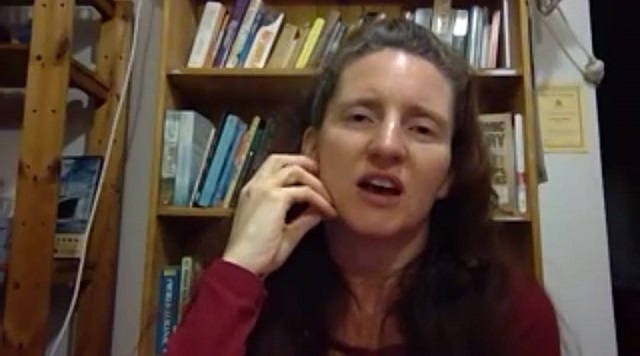
Kampala, Uganda | THE INDEPENDENT | There have been many concerns about getting people to recover from the mental stress caused by COVID-19 lockdowns as many authorities move to reopen their countries fully. However, other countries have reinstated some restrictions to battle new variants like Omicron, which according to some experts must be handled after making a thorough cost-benefit analysis.
They also say, players must put in place measures to aid people deal with the stress that lockdowns have caused.
Speaking at the 10th virtual townhall meeting themed ‘the end of lockdowns; establishing viable social mechanisms beyond COVID-19 restrictions,’ Gigi Foster, the director of Education, School of Economics at the University of New South Wales Business School, said it is very important to reach people who are brainwashed by Covid restrictions and slowly deal with their misapprehensions.
Foster, in addition said, it is good to get people into jokes, provide political cartoons showing what people have gone through during the pandemic.
“We have to cause humor and have visual images and put them in public spaces to make people laugh and recover from the pandemic,” she said.
The good thing, she said, there is an opportunity for truth to prevail given that, there is slow departure of leaders trying to hide behind COVID-19 to push for their agendas.
She added that there is a need to put the needs of human beings and communities first in this whole thing of covid management.
“We should have the same vision and perspective going forward,” she said. She also said, there is a need to have people with strength and passion in them working together on managing crises.
She said, the resistance against lockdowns all over the world in every walk of life is growing and that could yield results in terms of human needs.
She also said, community connection and meaning in the lives of people have been deprived and a sense of fear created.
“Fear makes us blind to everything that matters in all times,” Foster said. She said, in determining what economics is all about, one needs not to think about money, stock market value only, but has to think beyond, about peoples’ perception and engagement.
She also said, governments missed an opportunity of making the cost benefit analysis to better manage the pandemic.
In the end, she said, lockdowns destroyed people’s community connection, their ability to go to work and separated them from their families. “…that has a connection to mental stress,” Foster said.
“It is not the virus that destroyed lives of people, it is the human policy choices,” she said. She also said, it was unfortunate that politicians used COVID-19 to defend their power and cause disruption in education, the economy and other sectors of life.
Julius Ruechel, an independent writer focused on providing perspective on topics essential to the healthy functioning of science and democracy, criticized governments for thinking that they have a right to control other people in managing the pandemic.
“That reduces people to slaves… and is a violation of every principle that we have ever had in Western civilization.” “Taking away everybody individual autonomy is not right,” he added. In terms of pushing for vaccination, he said, that has to be voluntary and not mandatory to avoid any risks that could arise.
In line with human rights ethos, Ruechel said, governments need to have a transparent debate and ensure that they are held accountable to the people they lead.
Robert Fruedenthal, a psychiatrist in NHS mental health services in London, UK, said the whole idea about covid management leads to a human rights approach and ensuring that communities are left to think and act as they wish to avoid mental stress and depression.
“Lockdowns were discussed without largely the interests of the people that they are designed to protect,” he said, “Fundamentally lockdowns were good but they needed to balance that with protecting people’s liberties.”
He said, covid management has seen the transfer of life from the public into the private sphere and that has led to loss of sense of communal life. He also said, mask mandates are not good for people with some form of cognitive impairment.
He added that restrictions on religious institutions have made it difficult for leaders to advocate for the issues on behalf of the people whose interests they represent.
“Personally, this has been a disappointment,” he said.
Simon Ssenyonga, a Ugandan lawyer said, it is a sad experience for COVID-19 restrictions that remain in place and yet people/society generally finds its refuge in consistent association.
“There is need for coming together and uniting in times like these,” he said, “but suppression of such moments that bring together family are unfair.”
He also said, celebration of Christmas is actually a key aspect of people celebrating freedom of worship together with family.
Ssenyonga said, the day “we agreed that we need more of government and less of family and church is when we lost our rights, which do not come from the state.”
He also said, in the case of Uganda, many religious leaders pay a lot of respect to the current leader/government and end up not making a firm stance on making a call for their followers.
 The Independent Uganda: You get the Truth we Pay the Price
The Independent Uganda: You get the Truth we Pay the Price



